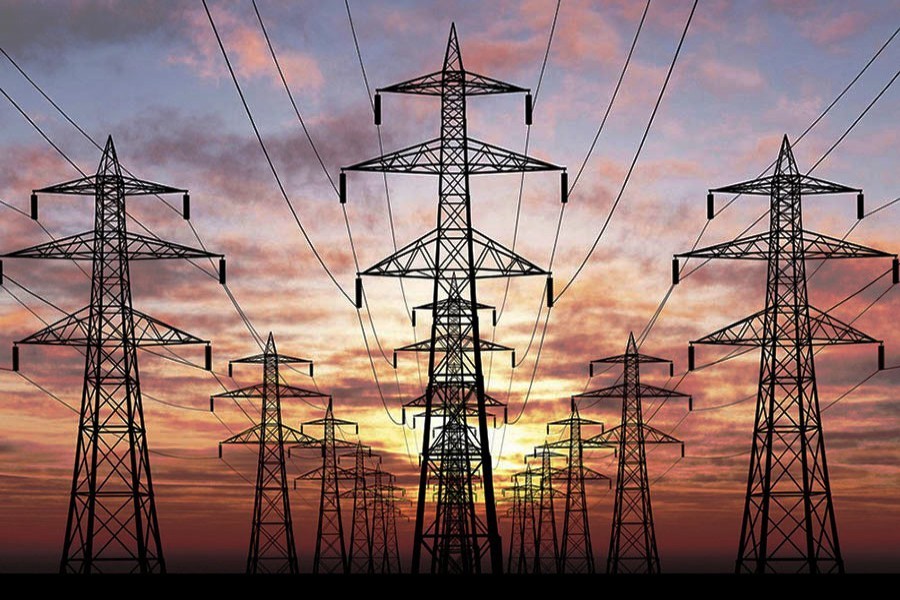
Two power entities lavish money
Project land acquisitions, procurements
FHM HUMAYAN KABIR | Saturday, 3 December 2022

Two power-distribution companies are found extravagant in their spending on development project-related land acquisition and procurement, overreaching government provisions, sources say.
Bypassing the Rural Electrification Board (REB) instructions, two of its Palli Bidyut Samities (PBSs) procured super-enamel copper cable directly from a company without open tendering. Such purchase infringes the public procurement law, they say.
Besides, Bangladesh Power Development Board (BPDB) and the REB also allegedly misappropriated a good amount of public funds through not bringing the electricity system loss down to 10 per cent in their electricity-distribution areas.
Audit finds that in the name of relevant expenditure for land acquisition, the BPDB in its distribution projects in Sylhet and Rangpur and the REB had spent Tk7.55 million in excess of the allocations for land acquisition.
The auditors at the Office of Comptroller and Auditor General (CAG) have found the irregularities and reported that the BPDB had paid 2.0-percent to 7.5-percent higher funds than the actual land-acquisition bills through bypassing the finance ministry's order.
Similarly, the REB had paid 7.5-percent to 10-percent funds in addition to allocated money for land-acquisition purpose.
According to a Ministry of Finance (MoF) circular, there is no scope of spending additional (or relevant) expenditure than the earmarked allocation for land acquisition against any development works.
Due to the failure in keeping the system loss under 10-percent limit by the Sylhet, Chatak and Sunamganj division of BPDB, the government incurred a loss of Tk85.23 million in FY2018 and FY2019, the audit report says.
The system losses under the three divisions were found 11.18 per cent in FY2018 and 17.29 per cent in FY2019.
According to government rules, it will be considered 'power theft' if more than 10-percent system loss is recorded.
The REB in Noakhali and Sylhet had wasted Tk101.48 million for failing to minimize the system loss under the tolerable level. The Parliamentary Committee on Public Accounts and the Ministry of Power, Energy and Mineral Resources in two separate instructions in June 2015 and in May 2019 had directed the authorities consider system loss beyond 10 per cent as the theft of public funds.
The committee also directed the authority to hold responsible those who will be in the sales and marketing divisions of the power-distribution companies for the failure in limiting the system loss below 10-percent mark.
Bending REB's instructions, Dhaka PBS and Narsingdi PBS procured super-enamel copper cable through direct procurement method (DPM) instead of Open Tendering Method (OTM) for rehabilitating transformers, the audit report says.
The PBSs "misappropriated" Tk 35.33 million through the violation of the Public Procurement Rules 2003.
"This is a clear violation of the PPR 2003," the CAG audit report reads.
The PBSs had procured the super-enamel cable from a local firm -- Gazi Wire Limited -- through direct procurement method, the report mentions.
Deputy Comptroller and Auditor General Khan Md. Ferdousur Rahman told the FE that they audit public accounts of the republic based on Bangladesh's constitutional mandate.
"As per the constitution, the audit reports of the Auditor-General relating to the public accounts of the republic are submitted to the President," he says.
Then the President sends those reports to parliament for taking necessary action, Mr Rahman adds.
Meanwhile, this reporter has tried to contact top executives of BPDB and REB for comments but failed.
Transparency Internat-ional Bangladesh (TIB) Executive Director Dr Iftekharuzzaman said the audit reports proved that "corruption in Bangladesh had expanded a lot".
"The audit reports should be discussed in parliament properly for ensuring transparency and accountability in the public finance and its expenditure," says the country executive of the Berlin-based watchdog.